Surge in Honor Killings As 13 Women Lose Lives In Iran in 17 Days

As honor killings surge in Iran, the past 17 days have seen at least 13 women murdered in horrifying incidents.

As honor killings surge in Iran, the past 17 days have seen at least 13 women murdered in horrifying incidents.
The most recent case, that of 20-year-old Razieh Hasanvand, has highlighted the pervasive issue, shedding light on the dire consequences of the phenomenon done in the name of Islam.
Razieh Hasanvand had been in a coma since October 14 after being shot, according to a report from the Hengaw Human Rights Organization. The young woman was a mother of one and had previously divorced her husband, who was her cousin, despite facing intense family opposition.
In recent times, Razieh had been under immense pressure from her brother to remarry another man. It was her own brother who shot her, reportedly because she had "left the house," as stated by Hengaw.
The Human Rights Organization emphasized, in another report, that from September 29 to October 16, a total of thirteen women in various Iranian cities have fallen victim to honor killings.
The exact number of such murders in Iran remains unknown, veiled in secrecy, but back in December 2019, the ISNA news agency reported that between 375 and 450 such killings occurred annually throughout the country. Given the lack of transparency of the regime and lack of transparent reporting of such deaths, it is likely to be far higher.
Critics have pointed to the Islamic legal system, as well as Iran's deeply ingrained patriarchal culture and traditions, as factors that perpetuate an environment allowing for such killings to persist.
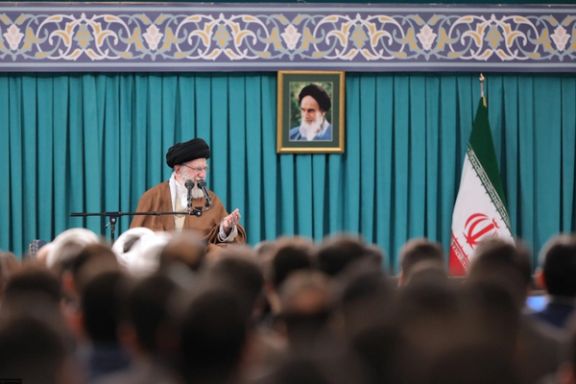
Iran’s ruler Ali Khamenei has downplayed the killing of Israeli civilians in a speech on Tuesday, saying they were armed and Israel has killed many more Palestinians.
“Some officials in certain countries, who have spoken with our officials, have protested in defense of the Zionist occupiers as to why Palestinians have killed civilians,” Khamenei stated.
“Firstly, this statement is contrary to the truth. Those who live in [Israeli] settlements are not civilians. They are all armed. Even if we assume they are non-combatants, how many non-combatants have been killed? The regime is now killing hundred times more women, children, the elderly, and the youth non-combatants who are in these buildings in Gaza, not the combatants who are not residing there. The combatants are in their own positions, and they also know this.” Khamenei said.
The Islamic Republic, led by the 83-year-old authoritarian ruler, has been financially and militarily supporting Hamas, the Lebanese Hezbollah and other militant organization designated as terrorist groups by several Western countries. Top Iranian officials and government media rejoiced the news of Hamas’ attack on October 7, after the enormity of civilian massacre has already emerged. The government ordered street celebration and vowed to continue support for Hamas.
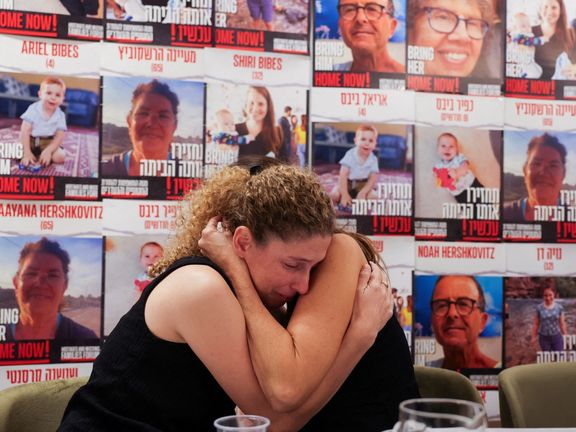
Khamenei went on to blame the United States for directing Israeli policies in the past one week, as Israel has been launching devastating air and artillery attacks against northern Gaza. Thousands of Palestinians have been killed and injured, as Hamas tries to prevent the population to move to less dangerous areas.
“They have to be prosecuted. The American government should also recognize its responsibility in this matter,” Khamenei said, and added, “Based on information we have, Americans are charting Israeli policies in the past one week. Americans should take responsibility, they are responsible. The bombings must be immediately stopped. Muslim nations are angry. Very angry. You see the signs of it, demonstrations by groups of people, not only in Islamic countries but also in Los Angeles, in the Netherlands, in France, in European countries, in Western countries. People are gathering, both Muslims and non-Muslims.”
He also warned that Muslims and the “resistance groups” might retaliate if “this crime continues.” It would be hard to prevent retaliation Khamenei said, quipping that in any case, “no matter what the Zionist regime does, it won't be able to compensate for the embarrassing defeat it suffered in this matter.”
Many Islamic republic officials and government entities have been sanctioned by the West over the years for their gross human rights violation against the Iranian population. Since September 2022, when widespread anti-regime protests broke out, security forces have killed well over 500 civilians and severely wounded hundreds. Many young protesters were targeted by shotgun pellets in the face and lost one or both eyes. The regime also arrested 22,000 people, including journalists and hundreds of minors.
At the same time, a deputy commander of Iran’s elite Revolutionary Guards was quoted by state media on Tuesday as saying that Israel will face another shockwave by the resistance front if its "atrocities" do not stop in Gaza.
"The resistance front's shocks against the Zionist regimes (Israel) will continue until this 'cancerous tumor' is eradicated from the world map," said Ali Fadavi.
"Another shockwave is on the way, if Israel does not end atrocities in Gaza."
Since the Hamas attack, the Iranian regime has mostly put aside its pretenses, showing clearly that Hamas and Hezbollah are virtually under their command.
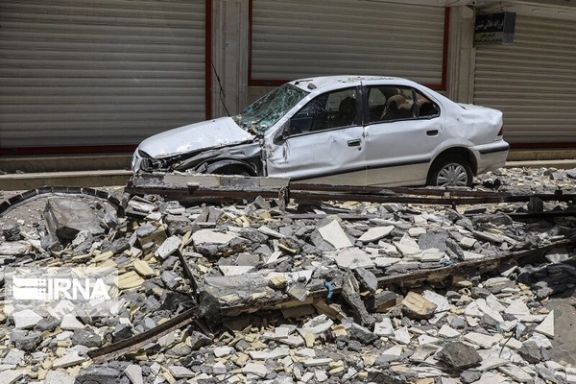
A magnitude 5.5 earthquake rattled southern Hormozgan Province in Iran on Tuesday morning, with tremors felt in neighboring provinces.
The temblor's epicenter was located approximately 61 kilometers north of Bandar Abbas, the provincial capital. The earthquake occurred at a depth of about 10 kilometers below the Earth's surface, according to the German Research Center for Geosciences (GFZ).
Tremors were felt across a wide region, including most of Hormozgan Province, southeastern Fars, and southwestern Kerman provinces. While there have been no immediate reports of damage or casualties, damage is possible in areas near the epicenter.
Comprehensive damage assessments are expected to take several hours, especially in remote regions. The earthquake serves as a stark reminder of Iran's vulnerability to seismic activity. The country is crisscrossed by major geological fault lines, making it one of the most earthquake-prone nations globally as it lies at the convergence point of the Arabian, Indian, and Eurasian tectonic plates.
Iran has a tragic history of experiencing devastating earthquakes in recent decades, some of which have resulted in the loss of tens of thousands of lives and caused billions of dollars in damages. The 2003 magnitude 6.6 earthquake in Kerman province, for example, claimed the lives of 31,000 people and reduced the ancient city of Bam to rubble.

Iran International has learned that parents of Armita Geravand, the teenage girl in coma after an encounter with hijab enforcers, were pressured not to file a lawsuit.
Based on the information obtained by Iran International, Armita’s parents were recently taken to the office of Delavar Alghasi-Mehr, the police commander of eastern part of Tehran province. There, they were forced to sign documents committing not file complaints against "any individual, organization, or entity."
Aghasi-Mehr, the police chief, was sanctioned in September by the US in connection to the regime’s repression in advance of the death anniversary of Mahsa “Zhina” Amini. Mahsa’s death at the hands of hijab enforcement patrols in mid-September 2022 sparked the Women, Life, Freedom protests.
Circumstances surrounding her case bear uncanny similarities to that of Armita. In both cases the regime has denied any wrongdoing but forced the families not to speak to the media and even broadcast video of the parents confessing on camera that what happened to their daughters had nothing to do with hijab enforcers.
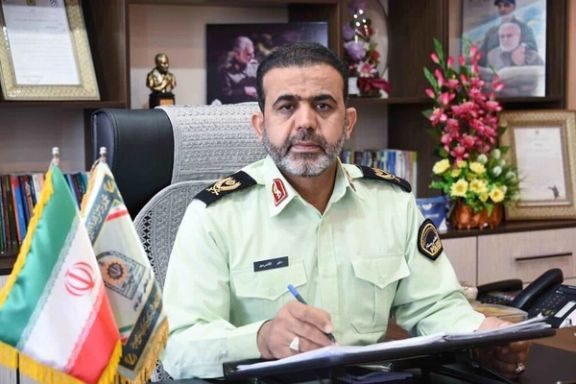
Following the encounter with hijab enforcers, Armita fell into a coma and is kept in a heavily guarded hospital. She reportedly hit her head when she fell to the ground and lost consciousness after being assaulted by hijab enforcers on her way to school in a subway car two weeks ago. Last week, Hengaw Human Rights Organization reported that her medical team has told the family there is no hope for her recovery.
The regime has consistently resorted to a playbook of distorting the truth and intimidating victims’ families whenever its agents are implicated in any significant crime. Similar to the way they handled the situation while Mahsa Amini was hospitalized comatose, authorities have significantly restricted the family's access to Armita. Both the journalist who wanted to cover Armita’s story and Armita’s mother were briefly detained. Two journalists that reported on the case of Mahsa Amini are still in prison in Tehran since her death more than a year ago. The regime also killed more than 500 people and arrested over 22,000 who protested her death during months of rallies and strikes.
The news of Armita being reported as braindead has stirred outrage among many Iranians, who witness more people falling victim to the regime's strict enforcement of hijab that has become increasingly severe by punitive regulations via new hijab laws and modern technology.
People on social media question why authorities can use surveillance cameras to identify women who defy hijab but seem unable to find the truth in such situations. Footage of Armita's presence at the subway station and an audio file of the call made by an employee of the Tehran Metro to the emergency services, which state media have released, have not been able to convince the public that hijab enforcers were not involved in the incident.
In a harshly worded letter addressed to Iran’s ruler Ali Khamenei, daughter of former Iranian president Hashemi Rafsanjani enumerated the names of some of the iconic victims of the regime, asking, “How many Nedas, Navids, Mahsas and Armitas must be sacrificed and how long this destruction must continue until you realize the severity of the situation?"
Female Islamic scholar Sedigheh Vasmaghi also released a video without hijab for the first time last week, saying, "We must not stay silent and witness every day that an Armita, a Mahsa or another beloved child of ours becomes a victim merely for not wearing a headscarf."
The anti-regime movement that began more than a year ago has made it increasingly difficult for the clerical regime to enforce the mandatory Islamic dress code. Since the beginning of the ‘Women, Life, Freedom’ movement, tens of thousands of girls and women have shed their compulsory hijab. The regime seeks to criminalize hijab defiance, but no branch of the government wants to be solely responsible for complications and the risk of social backlash.
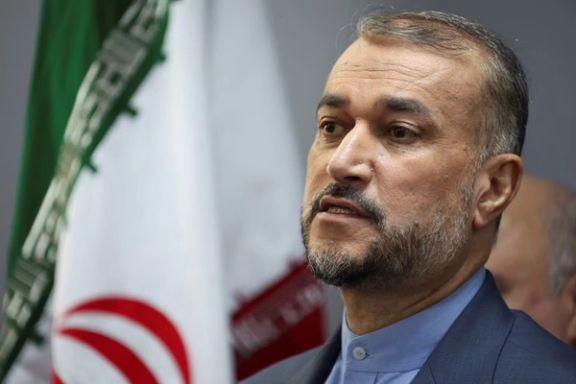
As tensions escalate in the Middle East, the Iranian Foreign Minister issued a warning about possible “preemptive measures” against Israel.
During a televised statement on Monday, Hossein Amir-Abdollahian expressed concern about the continuation of what the Iranian regime refers to as "war crimes of the Zionist regime", claiming if the bombardment of Gaza does not stop, "new fronts will be opened", referring to its proxies in Lebanon and Syria on Israel's borders.
It further raised concerns of Iran's fueling an already bloody war which since Hamas' October 7 invasion of Israel, has seen thousands killed across Israel and Gaza.
Shortly after his remarks, the Israel Defense Forces (IDF) launched airstrikes on Hezbollah positions in Lebanon. The IDF aimed to thwart an attempted penetration by Hezbollah forces into northern Israel. The IDF announced it had killed four terrorists on Tuesday morning.
The IDF stated that the targeted sites in Lebanon were used by Hezbollah to direct acts of terrorism. The strikes were in response to previous attacks by Hezbollah against the IDF. Former Hamas leader Khaled Meshaal also encouraged Hezbollah to become more directly involved in the ongoing conflict, emphasizing the importance of unified efforts in the battle.
At the same time, US President Joe Biden is scheduled to visit Israel and then proceed to Jordan on Wednesday, where he will engage with leaders from both Israel and the Arab world.
Biden's primary objective is to convey an unwavering commitment from the United States to support Israel. His administration has affirmed its dedication to providing military assistance, dispatching US carriers and aid to the region.
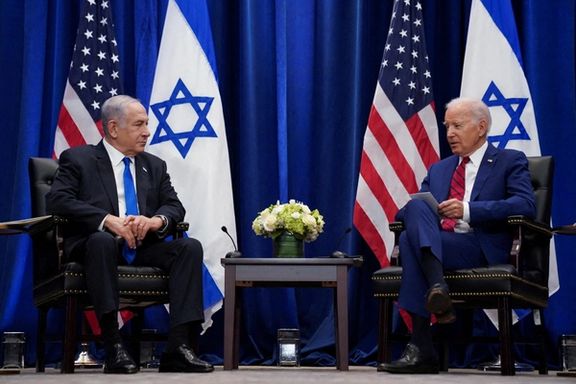
President Joe Biden will visit Israel on Wednesday, the White House has announced, as the commander of US forces in the Middle East arrived in Israel on Tuesday
The visit comes amid growing concerns that the conflict between Hamas and Israel would spread out and set the region ablaze.
Israeli forces have been preparing for a ground invasion of Gaza since last week, in retaliation for Hamas’ unprecedented attack that killed more than 1400 Israelis.
President Biden will also visit Jordan, where he will meet with King Abdullah, Egyptian President Abdel Fattah Sisi, and Palestinian Authority President Mahmoud Abbas. The leaders are expected to discuss the humanitarian situation in Gaza, where over 2,700 have been killed in Israeli airstrikes.
Secretary of State Antony Blinken said this morning that “the United States and Israel have agreed to develop a plan that will enable humanitarian aid from donor nations and multilateral organizations to reach civilians in Gaza.”
Blinken is on a marathon tour of the region. Monday, he had a 7-hour meeting with Israeli Prime Minister Netanyahu and his war cabinet.
President Biden's visit was announced only after Blinken received assurances that the Israeli government would agree to a comprehensive humanitarian aid package, including the establishment of safe zones for Palestinian civilians.
The US government seems to be pursuing a dual objective of aid and de-escalation, while supporting Israel in any decision it takes in its war against Hamas.
"We're not dictating terms or operational directions to the Israelis," said the Pentagon Press Secretary John Kirby on Monday. “We don't want to see escalation. We want to make sure humanitarian assistance begins to flow."
Hamas has taken numerous hostages into Gaza, including an undisclosed number of American citizens. Biden’s visit underscores the urgency of resolving this crisis.
US officials have expressed deep concern about the risk of this conflict escalating into a broader regional war. Biden has also issued warnings to other actors, particularly Iran, urging restraint and caution.
On Monday, Iranian Foreign Minister Kanaani issued a veiled threat to Israel. “They expose themselves to all sides that consider themselves committed to supporting the Palestinian people," he said, implying that its proxies on Israel's Lebanese and Syrian borders will once again be mobilized.
The Biden administration is keeping a watchful eye on the sentiments in Arab countries, where there is significant sympathy for the Palestinian cause. Escalation in the region could intensify pressure on these governments to take action against Israel, further complicating the situation.
Hezbollah began its most active day of attacks against Israel since the war began as tensions simmered and 28 towns and villages in Israel were subsequently evacuated.
On the other side, Israel’s attack on Gaza has displaced more than half a million Palestinians. The Israeli military says it won’t stop until Hamas is eliminated. It has called for over a million Palestinians to evacuate northern Gaza. UN officials have deemed this order unworkable and against international law.
The UN and the Biden administration have tried to draw a clear distinction between Hamas and Palestinian civilians, as Hamas has been urging residents not to leave northern Gaza. Many accuse the militant group of using civilians as human shields.
Egypt, a historical mediator in cease-fires between Israel and Palestine, plays a pivotal role in the ongoing efforts to secure humanitarian assistance. The Rafah crossing on the Egyptian border with Gaza is seen as the only lifeline for many Palestinians.
Secretary Blinken has tried to negotiate the opening of the Rafah crossing for the departure of foreigners and dual nationals. Following his meeting with President Sisi, Blinken announced that Rafah "will be opened".
The status of this agreement remains somewhat unclear.